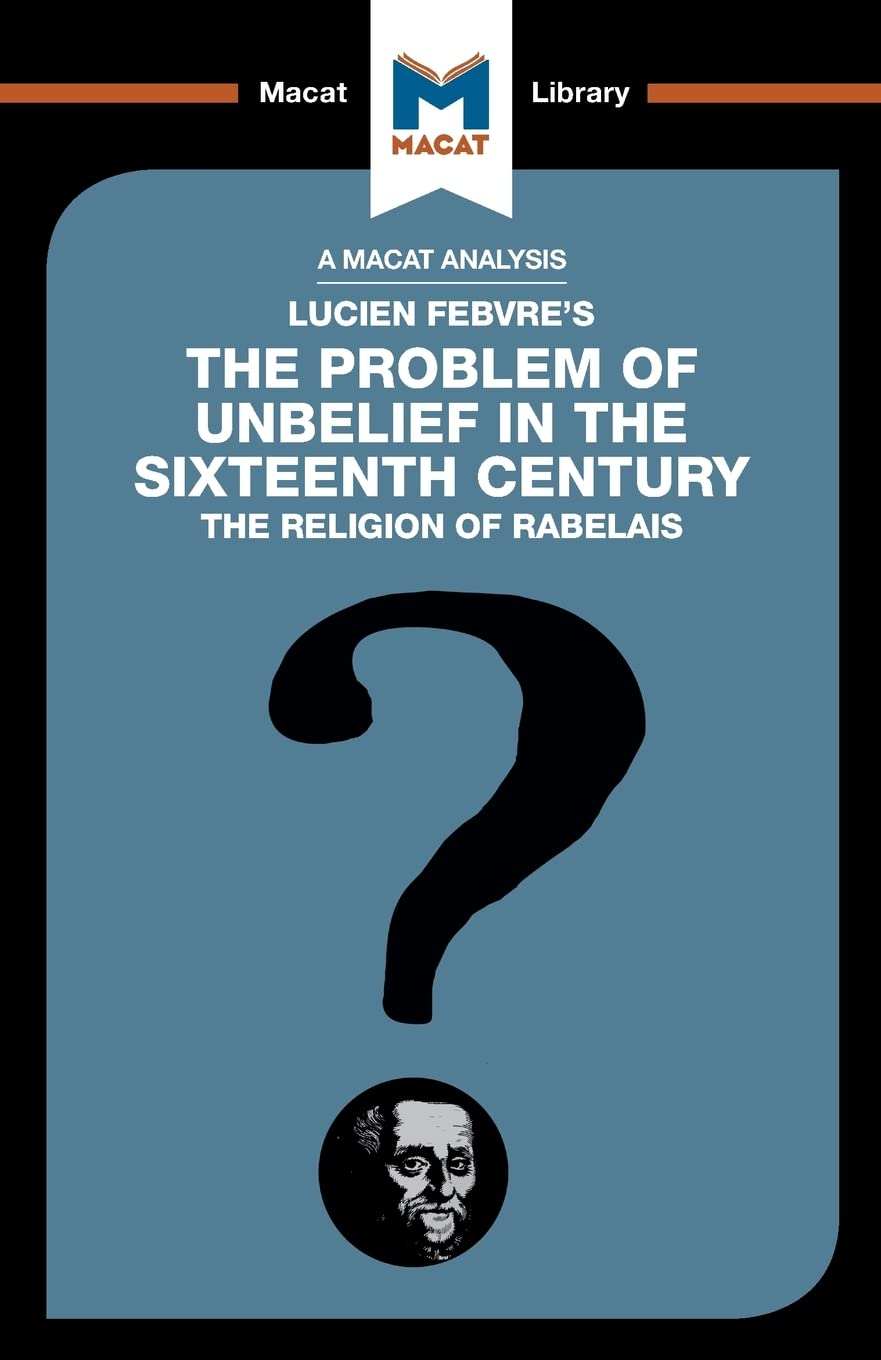AN ANALYSIS OF LUCIEN FEBVRE'S: THE PROBLEM OF UNBELIEF IN THE SIXTEENTH CENTURY
AN ANALYSIS OF LUCIEN FEBVRE'S: THE PROBLEM OF UNBELIEF IN THE SIXTEENTH CENTURY
Couldn't load pickup availability
Febvre asked this core question in The Problem of Unbelief: “Could sixteenth-century people hold religious views that were not those of official, Church-sanctioned Christianity, or could they simply not believe at all?” The answer informed a wider debate on modern history, particularly modern French history. Did the religious attitudes of the Enlightenment and the twentieth century―notably secularism and atheism―first take root in the sixteenth century? Could the spirit of scientific and rational inquiry of the twentieth century have begun with the rejection of God and Christianity by men such as Rabelais, writing in his allegorical novel Gargantua and Pantagruel – the work most often cited as a proto-"atheist" text prior to Febvre's study? The debate hinged on some key differences of interpretation. Was Rabelais mocking the structures of the Christian Church (in which case he might be anticlerical)?
Share

